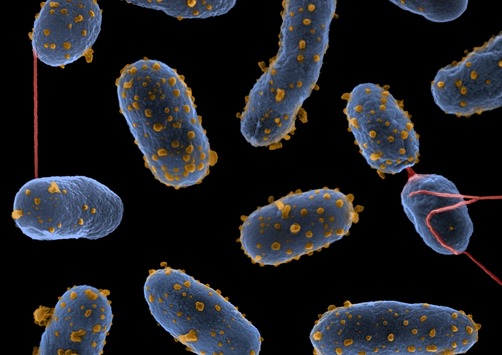
National Renewable Energy Laboratory (NREL) scientists engineered the bacterium Pseudomonas putida (pictured, including yellow “outer membrane vesicles”) to rapidly turn lignin in corn leaves, stalks, and cobs into the building block for making more sustainable nylon. Photo by Allison Werner, NREL 71619
Source: U.S. Department of Energy
Unlike the cellulose and hemicellulose found in plants, lignin is challenging to upgrade into biofuels or high-value bioproducts. Lignin is designed to resist decay; its interlocking molecular structure gives plants rigidity and durability. For biorefineries, the challenge of converting lignin to useful products is a century-old problem.

Fortunately, with the support of the U.S. Department of Energy (DOE) Bioenergy Technologies Office (BETO), researchers are a step closer to helping address the challenge. In a 2023 Science Advances paper, a team of National Renewable Energy Laboratory (NREL) researchers engineered the bacterium Pseudomonas putida to funnel the assortment of compounds in lignin into β-ketoadipic acid—a precursor for nylon that could replace petroleum-based adipic acid used to make conventional nylon today.
-and-
Discover how the team achieved this feat in BETO’s latest Bioprose: Bioenergy R&D Blog by NREL’s Dr. Zia Abdullah.





